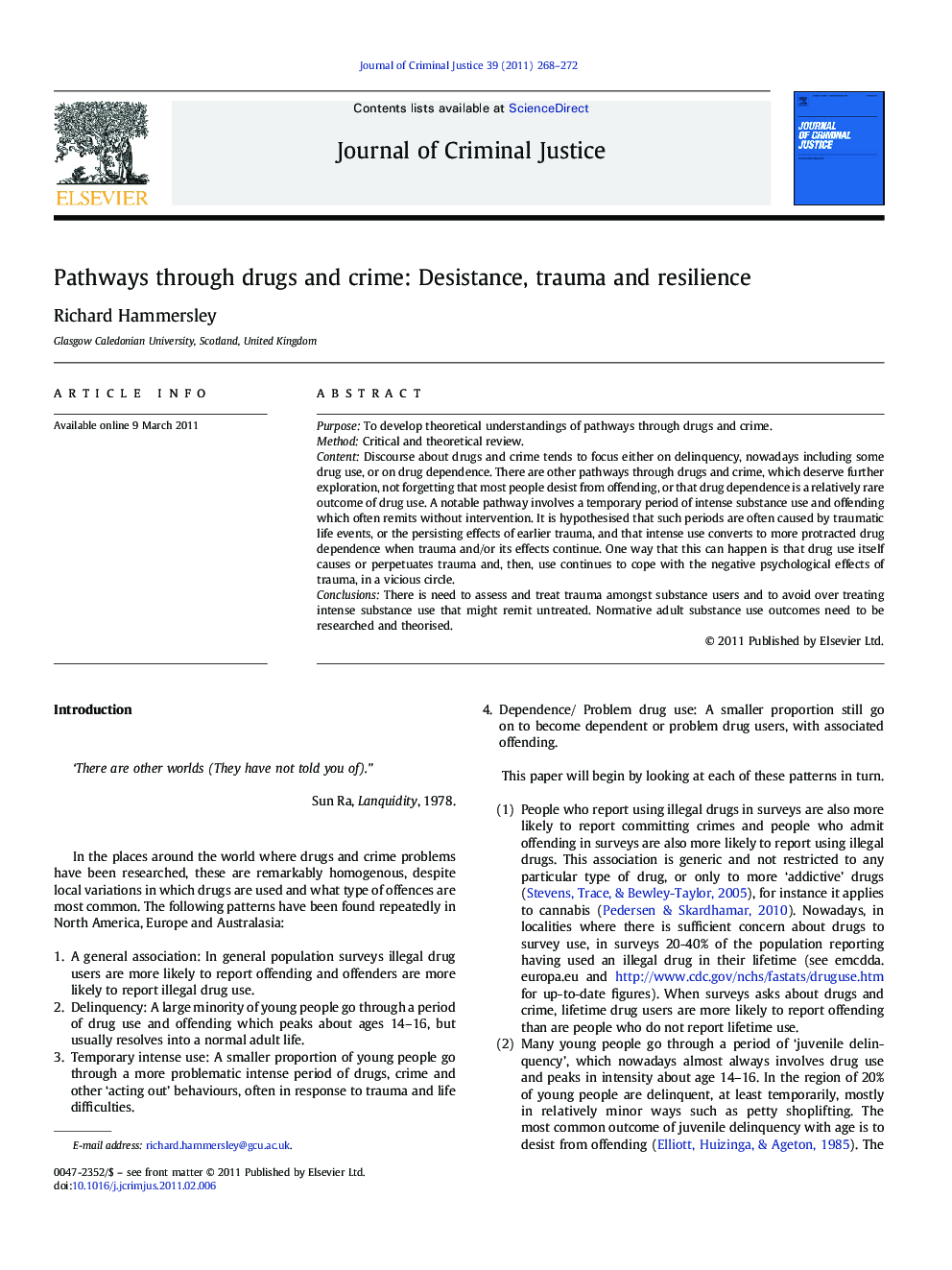| Article ID | Journal | Published Year | Pages | File Type |
|---|---|---|---|---|
| 882886 | Journal of Criminal Justice | 2011 | 5 Pages |
PurposeTo develop theoretical understandings of pathways through drugs and crime.MethodCritical and theoretical review.ContentDiscourse about drugs and crime tends to focus either on delinquency, nowadays including some drug use, or on drug dependence. There are other pathways through drugs and crime, which deserve further exploration, not forgetting that most people desist from offending, or that drug dependence is a relatively rare outcome of drug use. A notable pathway involves a temporary period of intense substance use and offending which often remits without intervention. It is hypothesised that such periods are often caused by traumatic life events, or the persisting effects of earlier trauma, and that intense use converts to more protracted drug dependence when trauma and/or its effects continue. One way that this can happen is that drug use itself causes or perpetuates trauma and, then, use continues to cope with the negative psychological effects of trauma, in a vicious circle.ConclusionsThere is need to assess and treat trauma amongst substance users and to avoid over treating intense substance use that might remit untreated. Normative adult substance use outcomes need to be researched and theorised.
Research Highlights► There are pathways through drugs and crime other than experimentation or drug dependence. ► Neglected pathways include intense substance use and offending which remits untreated. ► As adolescents age into adulthood they tend to reduce offending and increase substance use. ► Intense use is widely confused with dependence, which perpetuates ineffective and inappropriate interventions. ► Psychological trauma may trigger intense use and persistent or repeated trauma may cause drug dependence.
